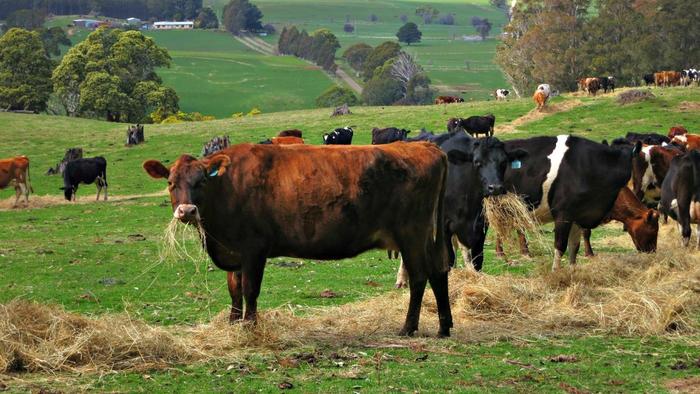Two weeks after the Nigeria Incentive-Based Risk Sharing System for Agriculture introduced a Farm-to-Market scheme, the movement of cattle by rail has commenced with the first 15 wagons of 500 cattle transported from the North to Lagos.
The scheme is to ensure a low-cost and efficient transport link between agricultural producers and consumers across the country.
NIRSAL is an initiative of the Central Bank of Nigeria to provide incentives including bank guarantees for agric projects.
Specifically, the group said the cattle were moved from Zamfara to Lagos.
The cattle train take off was witnessed by the Governor of Zamfara State, Yari Abubakar, officials of the Federal Ministry of Agriculture and Rural Development; Central Bank of Nigeria and representatives of international development partners and finance institutions.
Also present were representatives of banks, other private sector players, livestock traders, among others.
The journey, the first to be undertaken in over 40 years, is expected to last about two days with the final stop at Oko-Oba in Lagos.
It signals the beginning of the livestock transportation component of NIRSAL’s Farm-to-Market scheme.
According to the latest figures released by NIRSAL, the total value of the North East-Lagos cattle trade market alone is estimated at N324bn per annum.
This does not include the North/South-East cattle trade or the trade in small ruminants such as sheep and goats.
Overall, NIRSAL estimated the total live animal trade between the North and South to be from N850bn to N950bn per annum.
Speaking at the event, the Managing Director, NIRSAL, Abdulhameed Aliyu, said under the scheme, NIRSAL, in line with its mandate, would provide bank guarantees for the financing of critical requirements involved in the movement of the cattle including logistics and equipment.
According to him, the project is a culmination of two years of intensive work by NIRSAL and Connect Rail Services Limited.
Abdulhameed said, “What we have witnessed today is the culmination of this rigorous and consistent effort to demonstrate that agric in Nigeria can be innovative and business-oriented.
“The transportation component launched today is only the first part. The next phase of NIRSAL’s effort for the commercial development of the livestock value chain will include the creation of business models and specific financing products for the ranching and trading components of the value chain.”
The scheme, according to him, is projected to reduce the cost of transporting cattle from the North to the South by over 20 per cent, minimise injury and death of cattle while in transit and preserve 100 per cent of their value so that livestock breeders can get good price for their produce at the destination markets.
The Zamfara State governor, who was represented at the event by his deputy, Ibrahim Mohammed, said the scheme would enable cattle rearers to have access to wider markets.
He also said, “Railway offers a more convenient means of moving goods across the country.”
Also speaking at the event, the Managing Director, Connect Rail Services, Mr. Edeme Kelikume, said the company was excited at the magnitude of the scheme and the massive impact it would have on the economy.

 Naira4 weeks ago
Naira4 weeks ago
 News3 weeks ago
News3 weeks ago
 Education4 weeks ago
Education4 weeks ago
 Social Media4 weeks ago
Social Media4 weeks ago
 Economy4 weeks ago
Economy4 weeks ago
 Investment4 weeks ago
Investment4 weeks ago
 Dividends4 weeks ago
Dividends4 weeks ago
 Business3 weeks ago
Business3 weeks ago





























